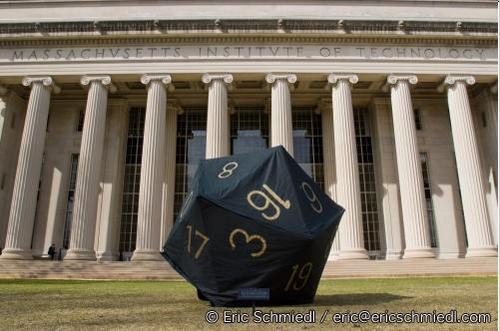 What varies widely is the proportion of the three to one another. In Rolemaster, training and the die roll are about equal in importance, but the attribute is about a quarter as big. In GURPS, attributes and the random factor are equal, with training being the much smaller part. But in real life, if real life is a roleplaying game, the proportion between these factors varies with different skills and even with the circumstances.
What varies widely is the proportion of the three to one another. In Rolemaster, training and the die roll are about equal in importance, but the attribute is about a quarter as big. In GURPS, attributes and the random factor are equal, with training being the much smaller part. But in real life, if real life is a roleplaying game, the proportion between these factors varies with different skills and even with the circumstances.For instance, consider batting versus pitching in baseball. Even the best batters have an average of less than one in three, meaning the random factor is quite large. Put the best batter in the league against the worst pitcher and he'll still miss half the time. And that's just missing, that's not considering how some hits are better than others. The random factor is quite large here.
Now consider chess. Put a grandmaster against a strong amateur and he will probably win 100 games out of 100. Even against another grandmaster of a significantly lower rank, he'll probably win almost all the time. The random factor is very small compared to the attribute and skill parts in chess.
In real life attributes can be trained somewhat, where most games ignore this or deprecate it for simplicity's sake (and because they're modeling adventure fiction more than real life). In the case of acrobatics, no amount of training is going to make someone who lacks the muscle tone and agility able to compete with someone with a dancer's build and only a little training; attributes are more important than training here (though of course you need both to excel). But while knowledge of history depends on having a good memory and an interest in the subject, someone who has invested a lot of effort in training (cramming for a test) can easily beat someone with a great memory who hasn't read the material, so training is more important than attributes.
If you consider the act of driving, the random factor is pretty small when you're just going to the corner store. Tens of thousands of trips to the corner store will be completed with little variation just in your town today, by drivers of middling skill. Barring extenuating circumstances like a blizzard or a drunk driver, hardly anyone will crash into a fencepost (or discover a previously unknown and highly efficient shortcut, for that matter). But when you're driving in a blizzard, the random factor suddenly gets a lot bigger; even those with a lot of skill stand a suddenly increased chance of failure that can't be modeled with a simple penalty to your roll.
This is the kind of thing that can't realistically be modeled by a roleplaying game unless that game's internal mechanics are mostly being handled by a computer which is being steered by a gamemaster. I wish I had nothing else to do for the next year but to work on developing one of those, just to prove it could be done, and wouldn't necessarily be subject to all the bugaboos people imagine when they think of that being done badly.

 RealTime and RTC
RealTime and RTC Prism
Prism Uncreated
Uncreated Bloodweavers
Bloodweavers Foulspawner's Legacy
Foulspawner's Legacy Lusternia
Lusternia
No comments:
Post a Comment